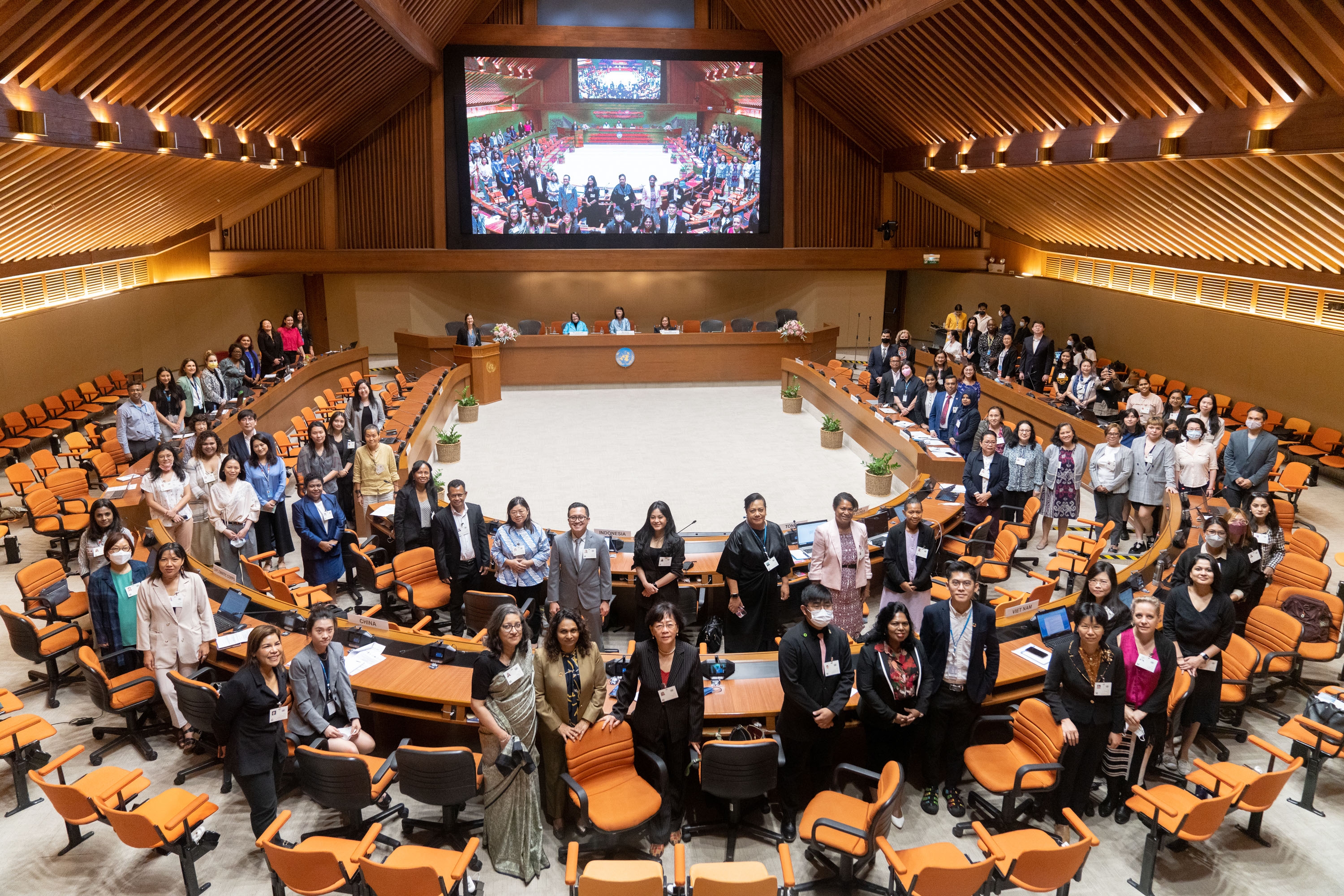
Women and girls continue to be held back by persistent discrimination and outdated stereotypes, yet the digital revolution has substantial potential to generate great socio-economic benefits and contribute towards advancing gender equality in many ways.
The Asia-Pacific Regional Consultation on the 67th Session of the Commission on the Status of Women (CSW67), held from 8 to 9 February in Bangkok, focused on identifying and addressing these challenges, with the aim of fostering a more secure, inclusive and equitable digital sphere.
In the Asia-Pacific region, a majority of women and girls continue to lack connectivity and basic digital literacy. Prevalent online gender-based violence, barriers to enter STEM-related industries, persistent gender norms and stereotypes such as “science is for boys,” as well as a severe lack of policy support to increase digital inclusion are further disempowering women and girls in this digital age.
“We must achieve meaningful and universal connectivity to narrow the gender digital divide and fulfil the commitment of leaving no one offline,” said Cai Cai, Officer-in-Charge of the Social Development Division at the United Nations Economic and Social Commission for Asia and the Pacific (ESCAP), further emphasizing the widening gender digital gap in the region.
Participants from diverse backgrounds exchanged experiences, knowledge and good practices under the CSW67 priority theme “Innovation and technological change, and education in the digital age for achieving gender equality and the empowerment of all women and girls.”
While noting the challenges, they also shared abundant positive examples such as how e-commerce platforms are bringing women entrepreneurs and retailers new business opportunities, enabling them to enter traditionally male-dominated sectors all the while giving them flexibility to balance care responsibilities and paid work. Digital financial services are helping women avoid long journeys to banks and potentially increasing their access to financial services. Meanwhile, digital communication tools and channels are facilitating feminist collective actions and movements through the spread of information.
facilitating feminist collective actions and movements through the spread of information.
Sarah Knibbs, Regional Director a.i. of the UN Women Regional Office for Asia and the Pacific, stressed that “CSW67 provides a unique opportunity to advance a human-centered approach to digitalization, with feminist principles of inclusion, intersectionality and systemic change at the core.”
The two-day regional consultation resulted in a set of policy recommendations and actions, which includes:
- Strengthening multilateral cooperation, including at regional and sub-regional levels, in the development of inclusive digital technologies to advance universally, sustainable, meaningful, enriching, productive and empowering online experiences for women and girls.
- Enhancing meaningful connectivity that is safe, accessible and affordable for all.
- Including gender equality in the development of new technologies.
- Addressing and redressing the digital divide through monitoring and improving digital literacy.
- Taking steps to involve more women and girls in science and technology fields.
- Boosting gender equality in the labour force through digital inclusion.
- Enhancing social protection policies to support the most vulnerable and provide them with digital financial support.
- Supporting inclusive digital development and innovation.
- Addressing online and technology-facilitated gender-based violence and its consequences.
- Ensuring effective implementation of legislation and policies to respond to and prevent online and technology-facilitated gender-based violence.
The forum was jointly organized by ESCAP and UN Women, in collaboration with the International Telecommunication Union (ITU), the United Nations Development Programme (UNDP), the United Nations Population Fund (UNFPA) and the United Nations Children’s Fund (UNICEF).
Recommendations from this regional session will contribute towards the deliberations of CSW67 that will take place from 6 to 17 March 2023 in New York.
For more information: https://www.unescap.org/news/innovate-educate-empower-regional-consultation-explores-policy-solutions-advance-gender

